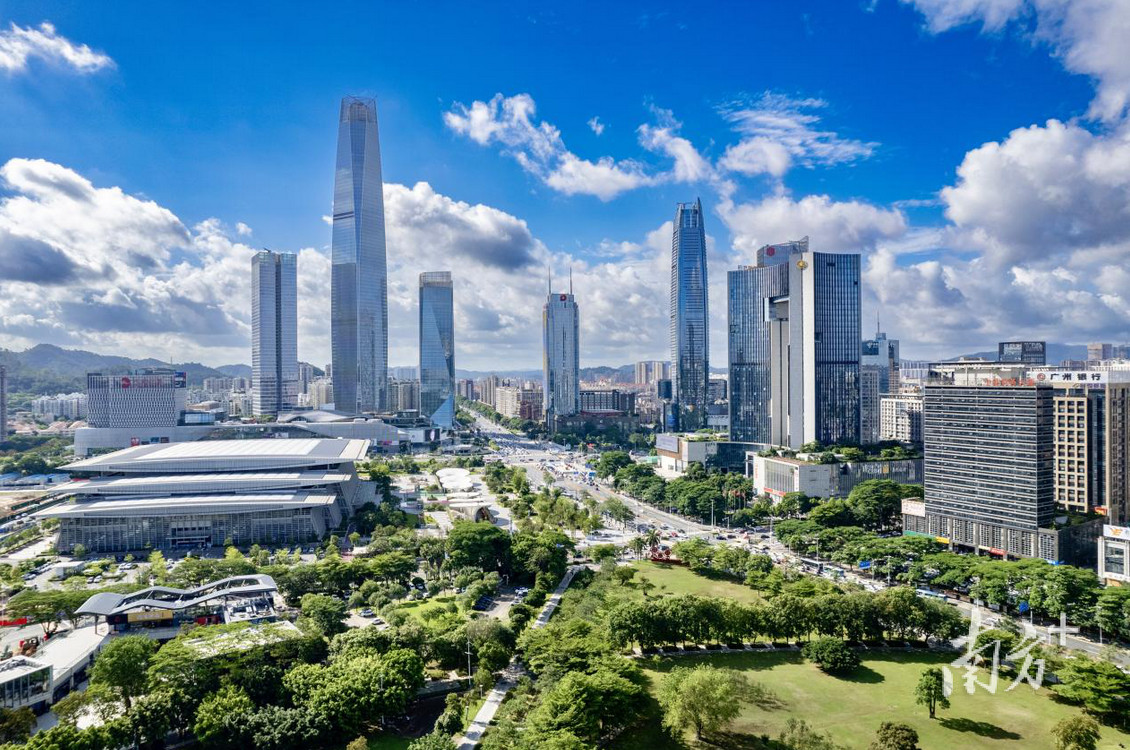Dongguan is a major prefecture-level city in Guangdong Province, China, known for its significant industrial output and manufacturing capabilities, particularly in electronics. With a population of over 10 million as of 2020, it is part of the densely populated Pearl River Delta region. The city has a progressive government that actively seeks foreign investment and ranks high in exports, trailing only behind Shenzhen, Shanghai, and Suzhou. Dongguan is also home to one of the world’s largest shopping malls and several universities. Despite its economic strengths, the city has faced challenges, including a crackdown on its notorious sex industry in 2014, which had a substantial economic impact.
1. Songshan Lake Scenic Area
Songshan Lake Scenic Area is a famous natural scenic spot in Dongguan, known as the “lung of Dongguan.” The area boasts numerous lakes with clear water and beautiful scenery. Visitors can enjoy activities such as hiking, cycling, and fishing. Songshan Lake is not only a natural scenic area but also integrates high-tech industries, making it a comprehensive area combining ecology, technology, and culture.
Features: Picturesque lake and mountain views, European-style architecture, and lush greenery, ideal for family outings.
Travel Tips: Bring sunscreen and enough drinking water. The lake area is large, and renting a bicycle is recommended for touring.
Transportation: Accessible by bus or car from Dongguan city center. There are multiple parking lots within the scenic area.
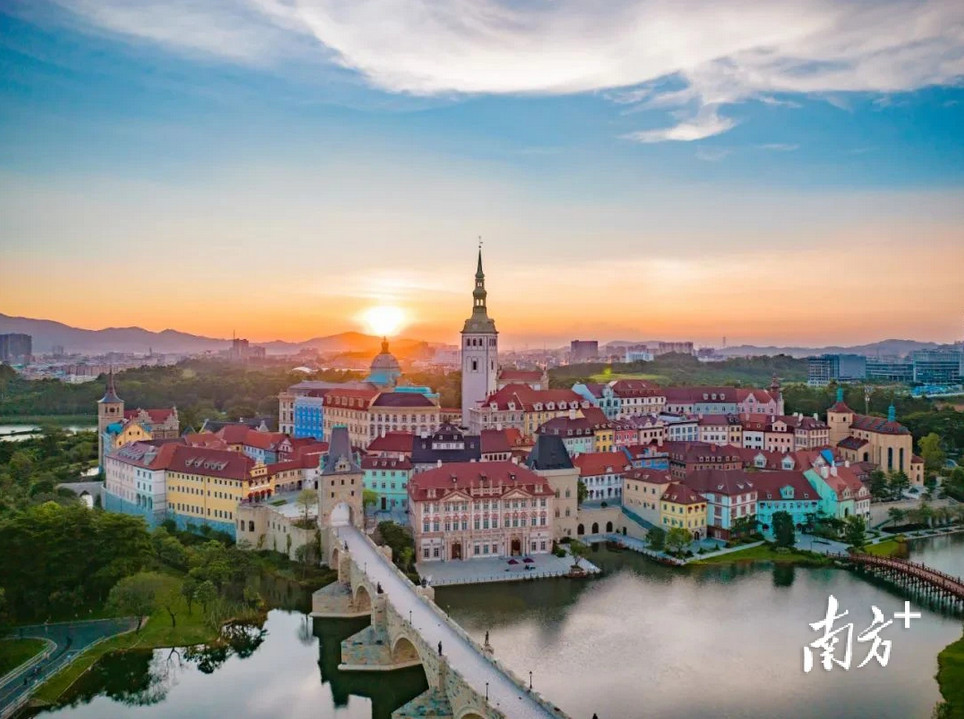
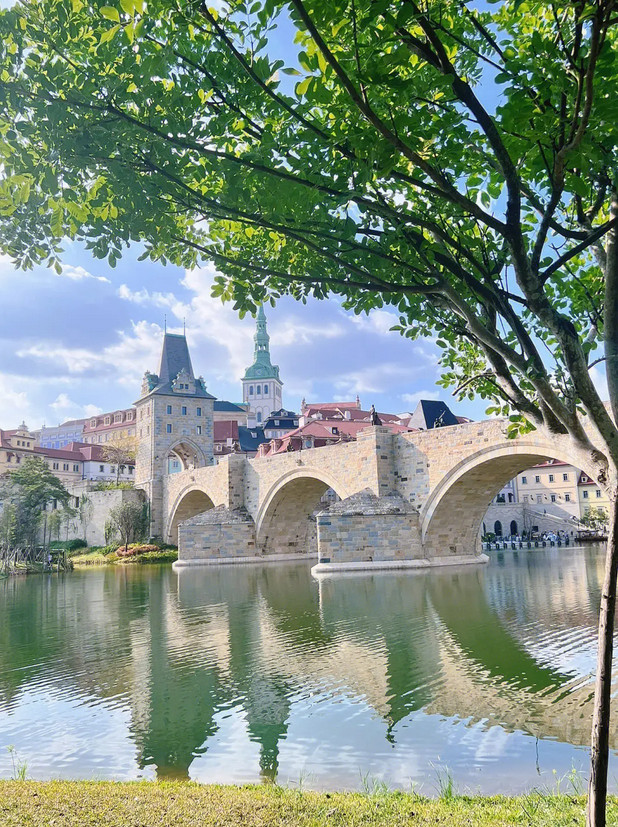
2. Keyuan Garden
Keyuan Garden is one of the four famous gardens in Guangdong and a gem of Lingnan garden architecture. The garden features intricately designed pavilions, bridges, halls, and courtyards. Despite its small size, it is exquisitely designed, offering panoramic views from its high towers.
Dongguan Ke Garden, located in Dongguan City, Guangdong Province, was established in 1850 and covers an area of 2,200 square meters. It is one of the four major gardens of the Lingnan region, known for its intricate design that combines residential, courtyard, and study spaces. The garden features various structures, including pavilions, bridges, and scenic areas, showcasing the unique charm of Lingnan garden art. Ke Garden has significant cultural importance, having nurtured many artists and intellectuals, and it houses a museum dedicated to classical garden architecture and Lingnan art. It was designated a national key cultural relic in 2001.
Features: Typical Lingnan garden style with ancient architecture and delicate garden design.
Travel Tips: Wear comfortable shoes as there are many stone paths in the garden, suitable for leisurely walks.
Transportation: Located at 32 Keyuan Road, Guancheng District, Dongguan. Accessible by bus or taxi.
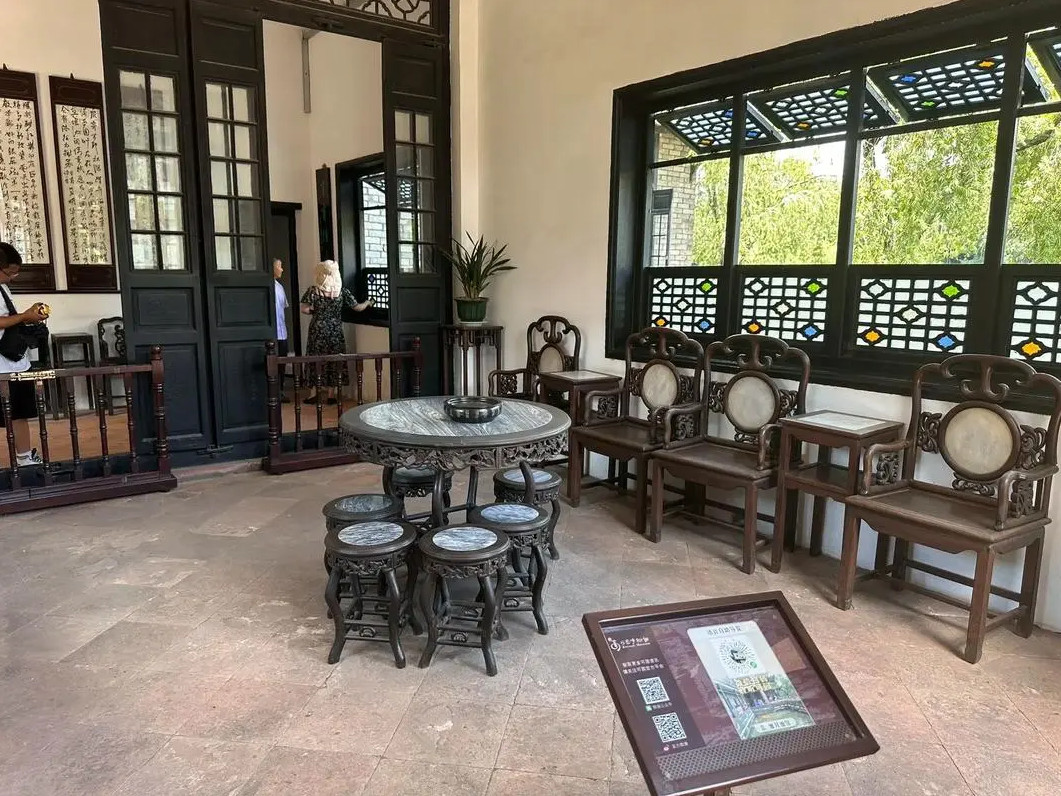
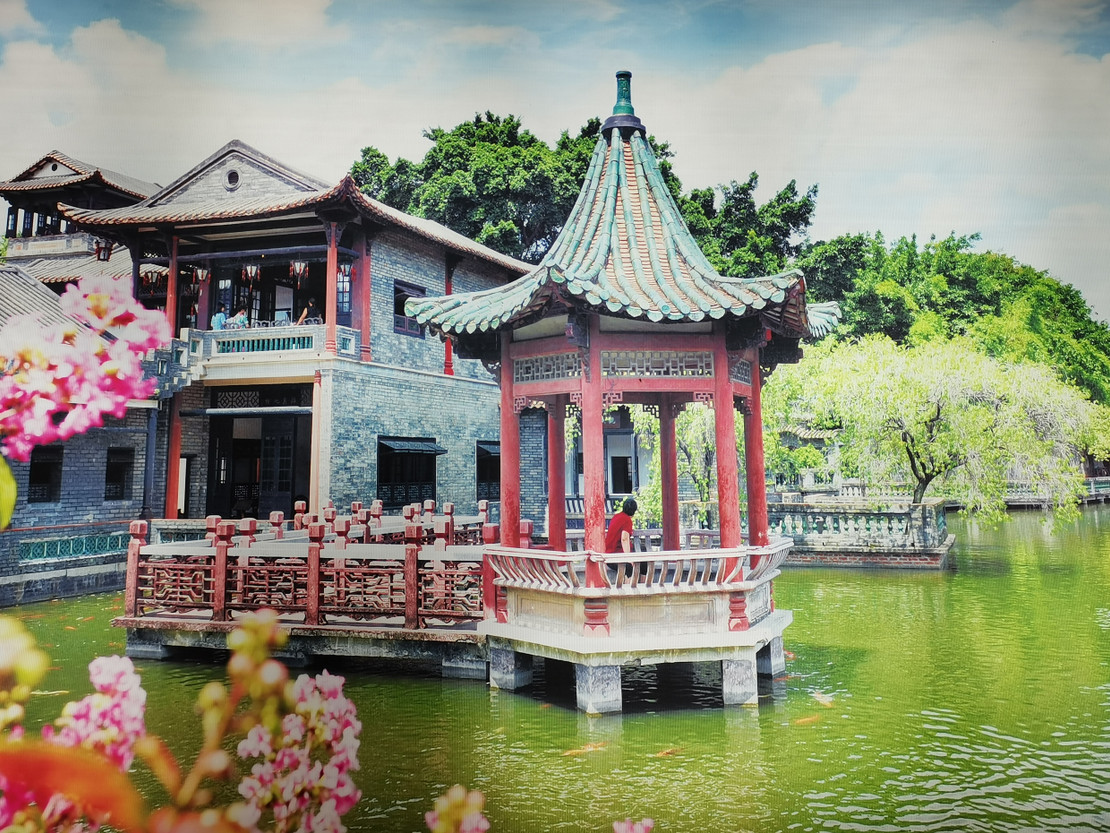
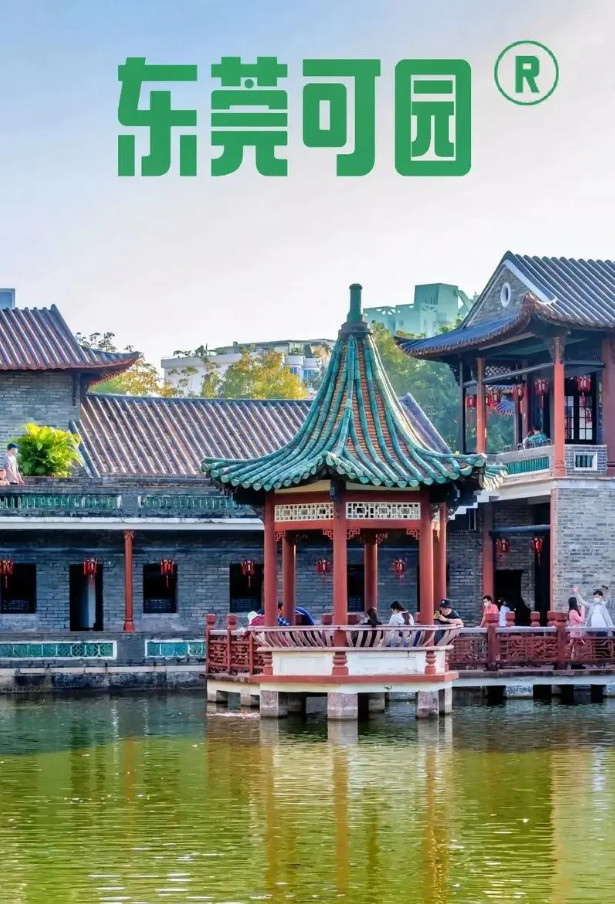
3. Yuen Yuen Garden
Yuen Yuen Garden is a typical Cantonese garden that recreates the serene elegance of ancient Lingnan architecture. The garden is surrounded by lush trees and features pavilions, towers, and corridors that are beautifully arranged, offering a tranquil and refined atmosphere.
Features: A representative work of Cantonese gardens, combining ancient architecture with natural scenery.
Travel Tips: Avoid peak holiday periods as the garden can get crowded, affecting the touring experience.
Transportation: Located at 1 Yuen Yuen Garden, Daojiao Town, Dongguan. Accessible by bus or car.
4. Guanyin Mountain National Forest Park
Guanyin Mountain is a famous Buddhist site in Dongguan, known as the “Southern Heavenly Land, Secret Realm of Hundred Yue.” The park features high mountains and dense forests, offering picturesque scenery. The ancient Guanyin Temple, built on the mountain, has a long history and grand architecture, making it a popular place for worship and relaxation.
Features: A combination of Buddhist culture and natural scenery, suitable for meditation and leisure tours.
Travel Tips: Wear comfortable hiking shoes and bring mosquito repellent as there are many insects on the mountain.
Transportation: Located at Bijiashan Avenue, Zhangmutou Town, Dongguan. Accessible by bus or car.
5. Opium War Museum
The Opium War Museum was established to commemorate the “Destruction of Opium at Humen.” It preserves the historical sites of the Opium War, including the Lin Zexu Memorial Hall, Naval Battle Museum, Shajiao Fort, and Weiyuan Fort. The museum brings history to life, allowing visitors to learn about China’s modern history.
Features: Rich in historical and cultural significance, ideal for those interested in modern Chinese history.
Travel Tips: Familiarize yourself with the history of the Opium War beforehand for a more meaningful visit.
Transportation: Located at 113 Jiefang Road, Humen Town, Dongguan. Accessible by bus or taxi.
6. Yinxian Resort
Yinxian Resort, located in Dongguan, Guangdong Province, covers over 500 acres and features a mix of attractions, hotels, and dining options. Established in 1995, it underwent a major renovation in 2017, earning a national AAAA rating. The resort includes various themed areas such as a water park, a 3D glass bridge, and an animal park, making it ideal for family visits. It also offers diverse dining experiences and has been recognized for its culinary excellence. Open year-round, Yinxian Resort is a popular destination for both leisure and cultural activities.
Features: Diverse entertainment projects and family-friendly activities, ideal for family outings.
Travel Tips: Plan your route in advance as the resort is large with many attractions.
Transportation: Located at 8 Yinxian Resort Avenue, Changping Town, Dongguan. Accessible by bus or car.
7. Yinping Mountain Forest Park
The Yinping Mountain Nature Reserve, located in Dongguan, Guangdong Province, features the highest peak in the city, Yinping Mountain, which stands at 898.2 meters. The reserve has a diverse topography, with elevations above 700 meters and a funnel-shaped rainwater collection area. It experiences a subtropical monsoon climate, with an average annual temperature of 21-22°C and significant rainfall concentrated from April to September. The area is rich in biodiversity, with lush forests, numerous waterfalls, and various scenic spots, including the Shigu Reservoir, which supplies drinking water to nearby towns. The reserve is accessible via several routes and has been recognized as a natural education base in 2021.
The view from the top is breathtaking, especially at sunset.
Features: The highest peak in Dongguan, ideal for hiking enthusiasts and nature lovers.
Travel Tips: Wear hiking shoes and bring enough water and food as facilities on the mountain are limited.
Transportation: Located at Nanmian Village, Xiegang Town, Dongguan. Accessible by bus or car.
8. Shuilianshan Forest Park
Shuilian Mountain, formerly known as Pengdong Mountain, is a scenic area in Dongguan, China, renowned for its lush forests, waterfalls, and historical significance. The area has attracted many famous figures since the Ming and Qing dynasties, inspiring poetry and cultural appreciation. The Shuilian Mountain Forest Park, established in 2002, spans 22.2 square kilometers and features various attractions, including ancient temples, hiking trails, and a botanical garden. It serves as a recreational hub for locals, promoting harmony between nature and urban life, and is recognized as one of the city’s major forest parks.
Features: Beautiful natural scenery, ideal for hiking and family outings.
Travel Tips: Bring sunscreen and enough drinking water. Suitable for family outings.
Transportation: Located in Shuilianshan Forest Park, Nancheng District, Dongguan. Accessible by bus or car.
9. Nanshe Ancient Village
The ancient architectural complexes of Nanshe Village and Tangwei Village, located in Dongguan, Guangdong Province, date back to the Southern Song Dynasty, with most structures from the Ming and Qing Dynasties. Nanshe Village features over 250 traditional Cantonese residences, including 25 ancestral halls and more than 100 ancient homes, centered around a pond with winding alleys. Tangwei Village showcases around 268 residences, with a unique layout that incorporates fish ponds and ancient wells, reflecting the area’s agricultural culture. Both villages preserve significant historical and artistic elements, including stone, brick, and wood carvings, and were designated as key national cultural heritage sites in 2006.
Features: Ancient buildings from the Ming and Qing dynasties, rich in historical and cultural significance.
Travel Tips: Wear comfortable shoes as there are many stone paths in the village, suitable for leisurely walks.
Transportation: Located in Nanshe Village, Chashan Town, Dongguan. Accessible by bus or car.
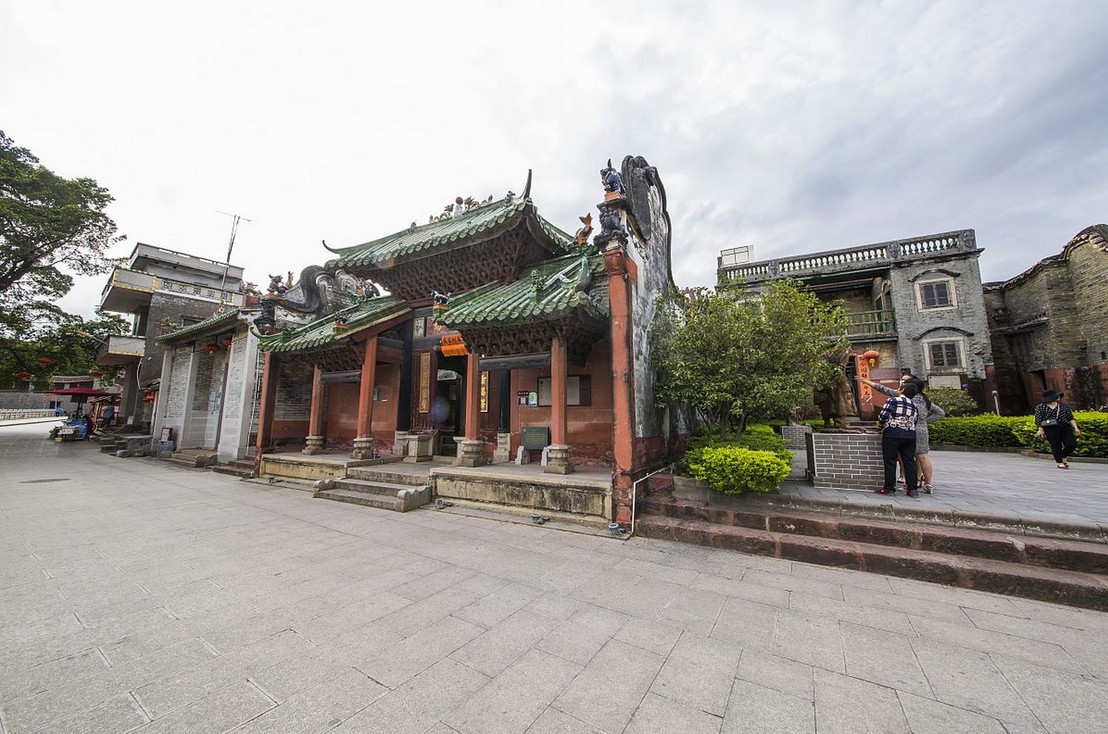
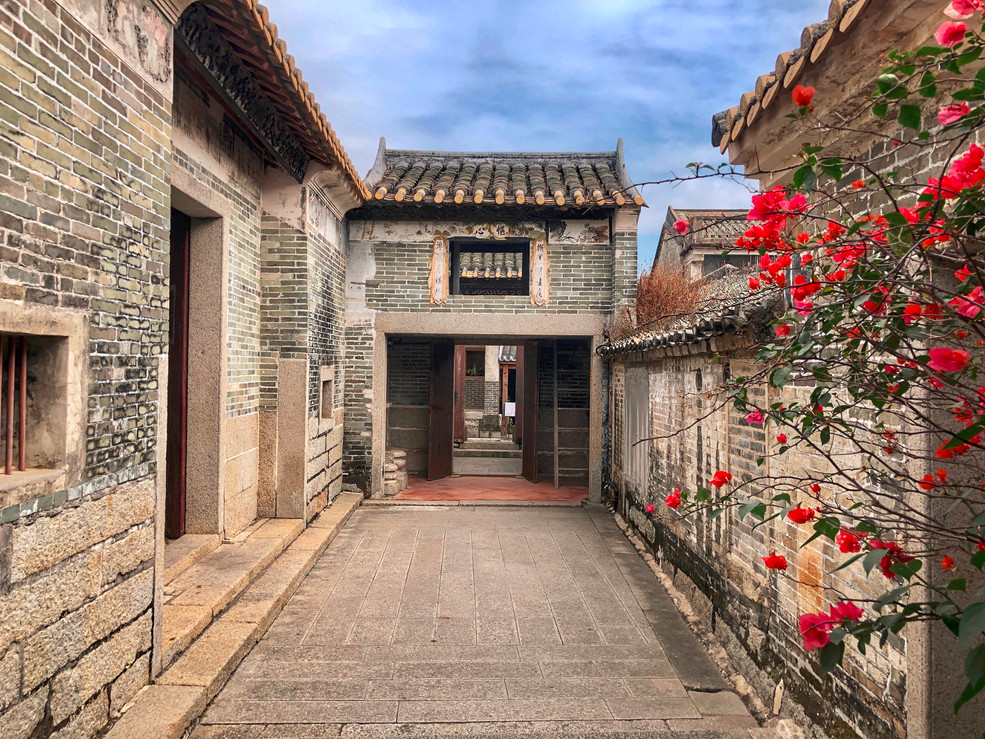
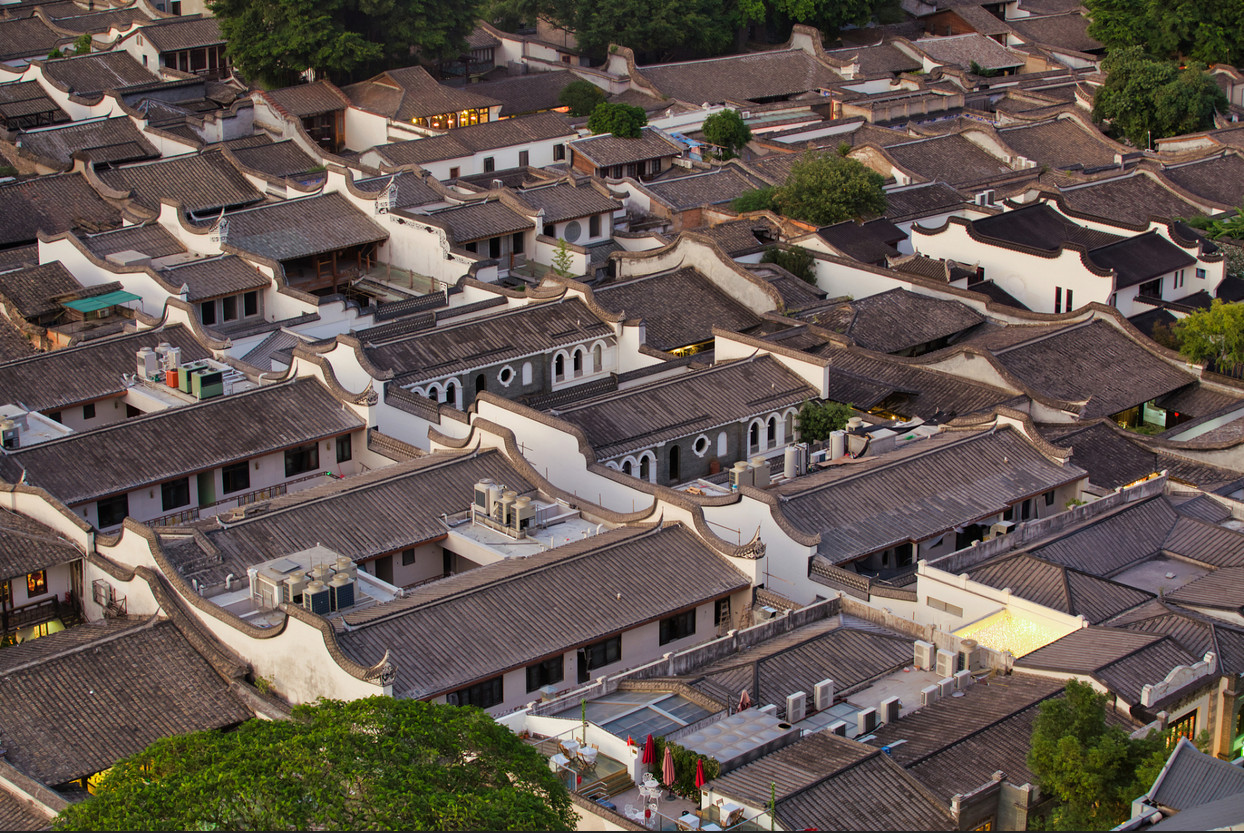
10. Longfeng Villa Resort
Longfeng Villa Resort, located in Fenggang Town, Dongguan, is a national AAAA-level tourist attraction themed around wedding culture. The resort features ancient castles, scenic spots, and various entertainment areas, making it a romantic and dreamy destination.
Features: Wedding culture theme, ideal for couples and family visits.
Travel Tips: Book wedding photography and other projects in advance as the resort can get crowded during holidays.
Transportation: Located at 59 Jiahui Middle Road, Fenggang Town, Dongguan. Accessible by bus or car.
These attractions each offer unique features and are suitable for different types of visitors, providing a rich and varied travel experience.
